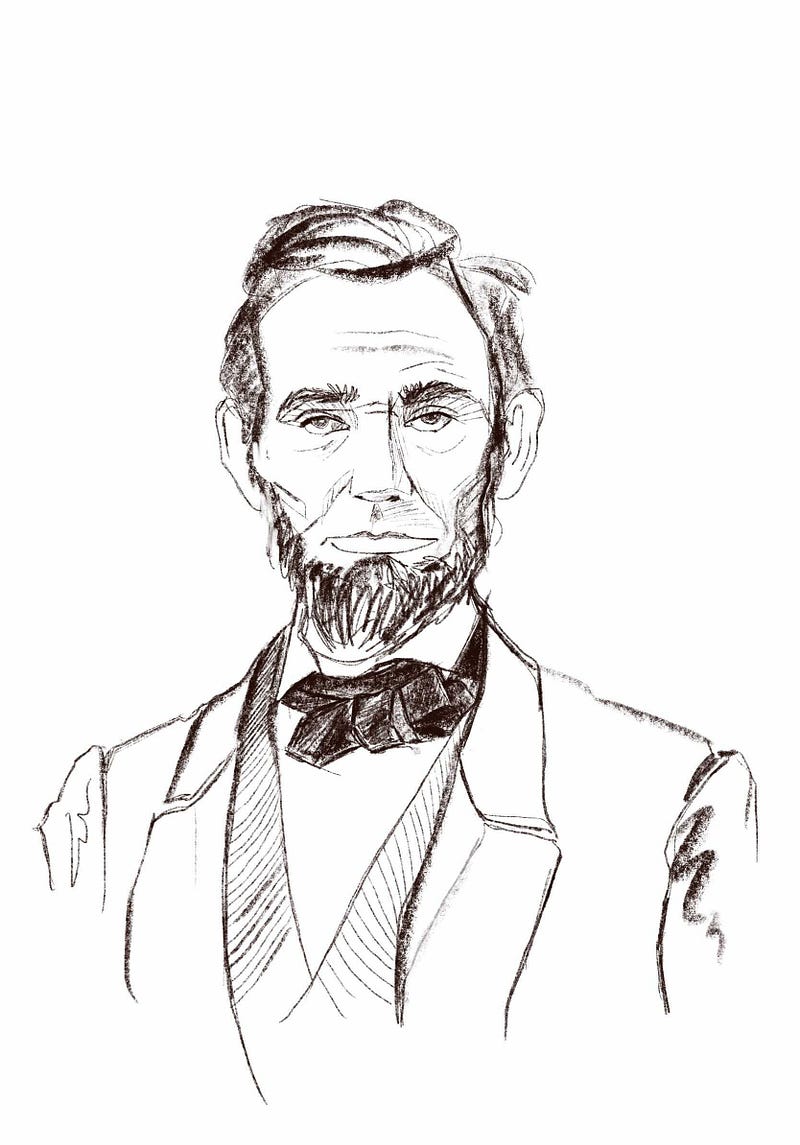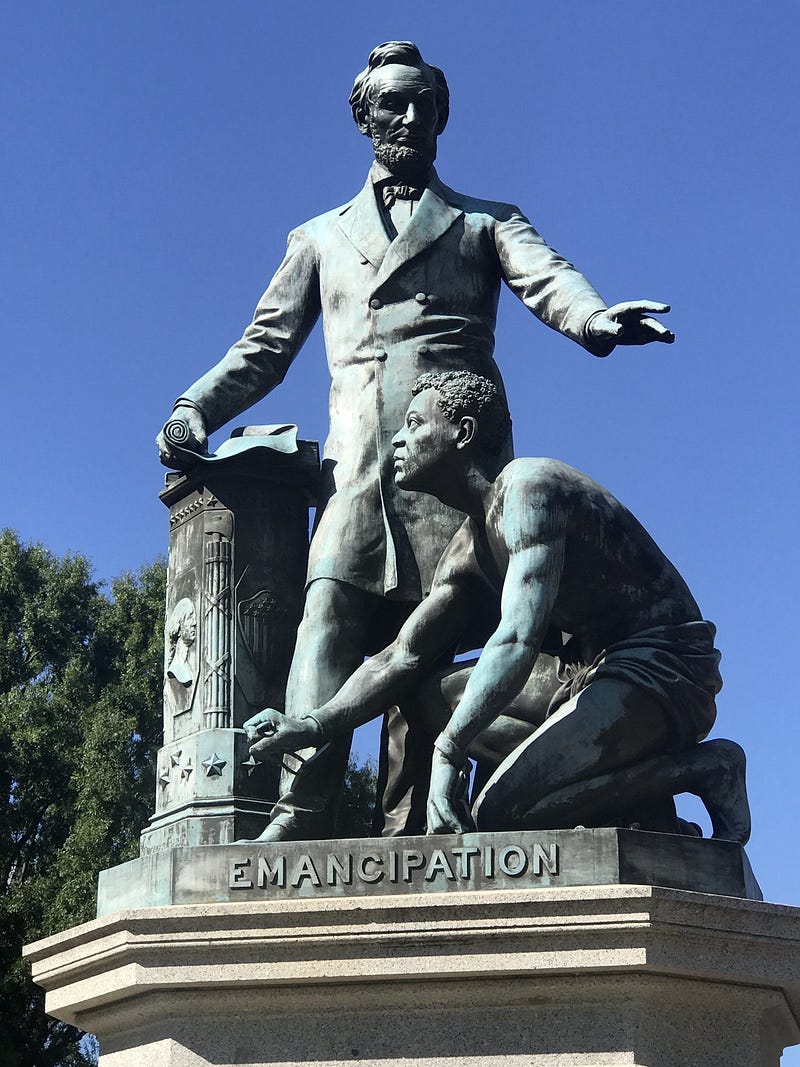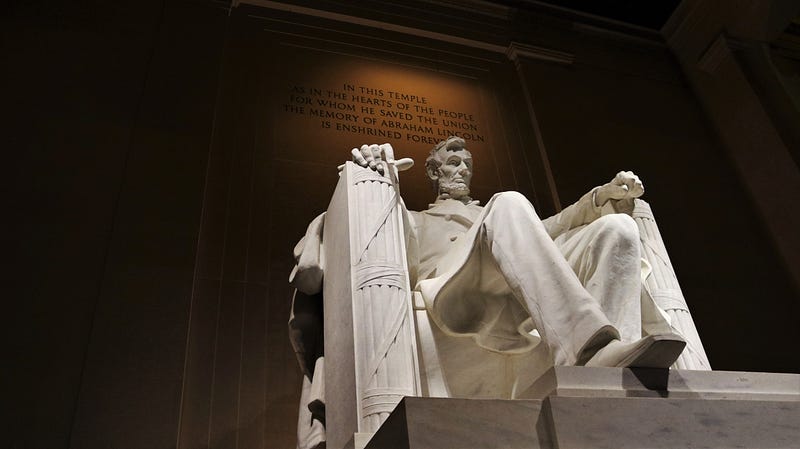THE CASE FOR THE 1619 PROJECT: ADDRESSING CRITICISMS
Lincoln Was Not Black Americans’ White Savior
The Emancipation Proclamation is only part of the story

Abraham Lincoln did not believe in maintaining the institution of slavery. That much is clear, and Nikole-Hannah Jones’ 1619 Project does not take that away from him. What it does is paint a clear-eyed picture of Lincoln’s ideas concerning race. He was not an anti-racist and, most importantly, did not view Black people as equal.
Lincoln viewed slavery as barbaric. Yet, he did not want Black people to prosper in the land of milk and honey. Understanding that nuance is needed in American society clings to white heroes even when history reveals racist beliefs and traditions.
One of the most notable critiques of the 1619 Project comes from Hannah-Jones’ essay entitled, “America Wasn’t a Democracy Until Black Americans Made It One.” In her article, she describes the hypocrisy latent throughout American history. White people fought for their freedom while failing to realize the value of Black liberty. In the modern era, many Black Americans celebrate Juneteenth in lieu of July fourth because freedom for some is not the same as freedom for all.
Africans did not come to this land in hopes of finding somewhere better than their homelands. However, once in America, Black people sacrificed everything for America.
To make moral penance or divorce themselves from guilt, White Americans often cling to the benevolence of powerful White men. Abe Lincoln signed the Emancipation Proclamation on January 1, 1863. According to the US National Archives, Lincoln declared that “all persons held as slaves within the rebellious states are, and henceforward shall be free.” This document also permitted Black people the right to fight against their former slave owners.

Unraveling the white savior complex
Abe Lincoln is someone conservatives try to protect as a beacon of their once pre-Reconstructionist party. However, the myth of Lincoln as a white savior comes crumbling down after evaluating the historical facts of the day.
Lincoln was always anti-slavery but was never anti-racist.
In a replica of the 1879 Emancipation Memorial, we can see “Abraham Lincoln standing next to a barely-clothed Black man. The president’s arm is outstretched, while the other man, down on one knee, displays broken shackles on his wrist and ankle (Irons, 2020). The notion that Black people should be subservient and grateful to Lincoln undermines the pain and suffering they endured. Imagine giving a downtrodden man a hundred-dollar bill. Would you then ask him to kneel and kiss the ring? I don’t think so. While Lincoln supported legislation that would end the demonstrable practice of slavery, he was not a champion for racial equality.
“He believed that free black people were a “troublesome presence” incompatible with a democracy intended only for white people. “Free them, and make them politically and socially our equals?” he had said four years earlier. “My own feelings will not admit of this; and if mine would, we well know that those of the great mass of white people will not (Hannah-Jones, 2019).” — excerpt from National Archives
Lincoln never wanted Black people to have equal political power in America. So, while critics may not like hearing the truth, they cannot deny that his go-back-to-Africa campaign cuts at the fabric of American white-washed history. Clearly, Lincoln was not an advocate for equality. He just felt that slavery took things too far. While environment and acquaintances, in essence, shape each person, Lincoln’s beliefs were not exclusive to his time era.

Some modern politicians on both sides of the aisle oppose police brutality, for example. But few support using methods like Defunding Police Departments to fund public programs that actually address safety. They also oppose ending qualified immunity, which could hold officers accountable when they violate civil liberties. Instead, they want to fix racism without listening to the Black people impacted by it, just like Lincoln did.
Lincoln said of the Civil War:
“Although many men engaged on either side do not care for you one way or the other … without the institution of slavery and the colored race as a basis, the war could not have an existence,” the president told them. “It is better for us both, therefore, to be separated (Hannah-Jones, 2019).” — excerpt from National Archives
Lincoln’s Plans for Black Americans
Foner traces how Lincoln first supported this kind of colonization — the idea that slaves should be freed and then encouraged or required to leave the United States — for well over a decade (Foner, 2010).
Like white Americans in the modern era, Lincoln didn’t know what to do with Black people. Contemporary research demonstrates white people struggle to recognize pain and sadness on Black faces. Perhaps, that explains why white people feel they have to “do something with Black people” instead of accepting them as equal people. White people often view the world through a clouded lens. Too many think of Black people as objects they should act upon rather than people with rich cultures, ideas, aspirations, love, and joy.
Instead of America paying restorative justice for the war crimes and human rights violations committed while creating the United States, Lincoln would prefer to send Black people away. It would be easier for white people like him never to see Black people, a reminder of America’s tragic legacy. After spending hundreds of years toiling in agony, he thought America could just wash its hands of the crimes. “America cannot free Black people and then tell them what to do with their freedom.” But that’s precisely what Lincoln proposed.
“Why should they leave this country? This is, perhaps, the first question for proper consideration,” Lincoln told them. “You and we are different races. … Your race suffers very greatly, many of them, by living among us, while ours suffer from your presence. In a word, we suffer on each side (Hannah-Jones, 2019).” — excerpt from National Archives
Excuse me, Lincoln? White people were not suffering side-by-side. Under the chattel slavery system, white people tortured human beings. Black Americans, in the traditional sense, never asked to come to this country. The idea of both groups suffering equally because white people did not like being in the presence of Black people shows how white privilege operated at that meeting on August 14, 1862.
If Lincoln was a white benevolent figure as conservative white people insist, how could he equivocate Black suffering with white privilege? To be clear, white people burned Black people alive, lynched them, and sold postcards bragging about their crimes. All the tears in the Passion of Christ could not equal the ones shed by my ancestors in bondage.
Historians like to say his views on race shifted. However, that is a bit misleading. It would be more accurate to say that Lincoln was always anti-slavery but was never anti-racist. Like many white people in the modern era, he upheld the system of white supremacy. Lincoln thought Black people would like his plan so much that he appointed James Mitchell, the commissioner of emigration. His first duty — ship Black people back to Liberia after ending slavery.
This inclination to send Black people elsewhere adds to the mountain of proof that America was founded by white supremacists, who thought white people were inherently superior to Black people. And relevant to the critiques of the 1619 Project Lincoln thought Black people did not belong in America. Perhaps, that’s why white people often tell Black people to “go back to Africa.” That “othering,” in and of itself, makes America a nation founded with racist tactics. White people have never since fully embraced Black people as full-fledged citizens worthy of consideration, care, respect, dignity, or restorative justice.
Lincoln’s Emancipation Proclamation angered Southerners, and his efforts did, in essence, “free the slaves.” However, he is nobody’s white savior. If President Lincoln had his way, Black people would not live in America today. Unlike any other group of immigrants, Africans did not come to this land in hopes of finding somewhere better than their homelands. However, once in America, Black people sacrificed everything for America. Lincoln’s idea that Black people should be forced to leave shows he did not think the Civil War would heal racial divides. He did not believe America should consist of a multiracial democracy, at least not one that included Black people.
People defending Lincoln are misguided because they refuse to acknowledge the events of August 14, 1862. There, in the White House, he told Black men they would be asked to leave. And it was there that disdain over the 1619 Project should end.
Though underappreciated and untaught by most white historians, African people fought to make America live up to its grandiose promise — the fight lives on in their descendants. Black women, like me, writing about injustices of the past are direct descendants of the chattel slavery system. Black history is American history.
Portraying Lincoln as a white savior takes away the nuance of his ideas about race. Though willing to set Black people free, Lincoln did not want them to be free to be Americans.
White colonists fought for American independence from Britain while keeping African people in bondage- the sheer caucacity of it all. Americans should be thankful for the Reconstruction Era and Black politicians for creating public schools.
Black legislators successfully pushed for a universal, state-funded system of schools — not just for their own children but for white children, too.(Hannah-Jones, 2019).
Ironically, American school children are not learning about the great Black men and women who fought to make education accessible to all American schoolchildren.
Nearly three years after that White House meeting, Gen. Robert E. Lee surrendered at Appomattox. By summer, the Civil War was over, and four million black Americans were suddenly free. Yet, contrary to Lincoln’s view, most were not inclined to leave, agreeing with the sentiment of a resolution against black colonization put forward at a convention of black leaders in New York some decades before: “This is our home, and this our country. Beneath its sod lies the bones of our fathers. Here we were born, and here we will die (Hannah-Jones, 2019).
References:
Foner, E. (2010, October 11). Lincoln’s Evolving Thoughts On Slavery, And Freedom. NPR. https://www.npr.org/2010/10/11/130489804/lincolns-evolving-thoughts-on-slavery-and-freedom.
Hannah-Jones, N. (2019, August 14). America Wasn’t a Democracy Until Black Americans Made It One. The New York Times. https://www.nytimes.com/interactive/2019/08/14/magazine/black-history-american-democracy.html.
Irons, M. E. (2020, June 20). Lincoln’s emancipation statute triggers debate on how the Black experience should be commemorated — The Boston Globe. BostonGlobe.com. https://www.bostonglobe.com/2020/06/20/metro/lincoln-emancipation-statue-triggers-debate-how-black-experience-should-be-commemorated/.
Up Next in WEOC’s Case for The 1619 Project:

